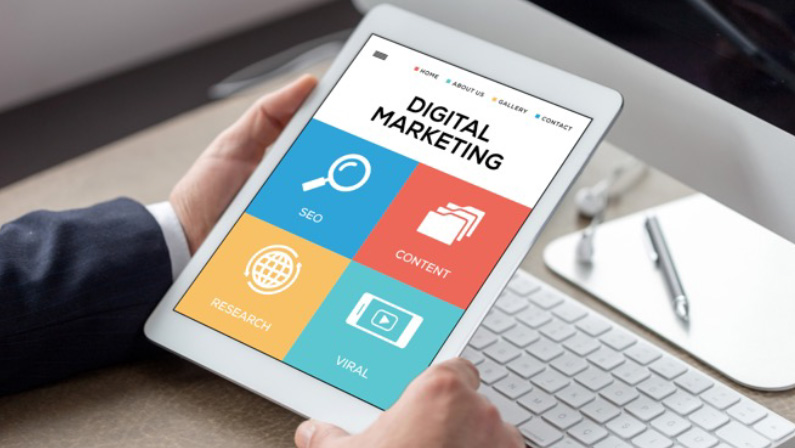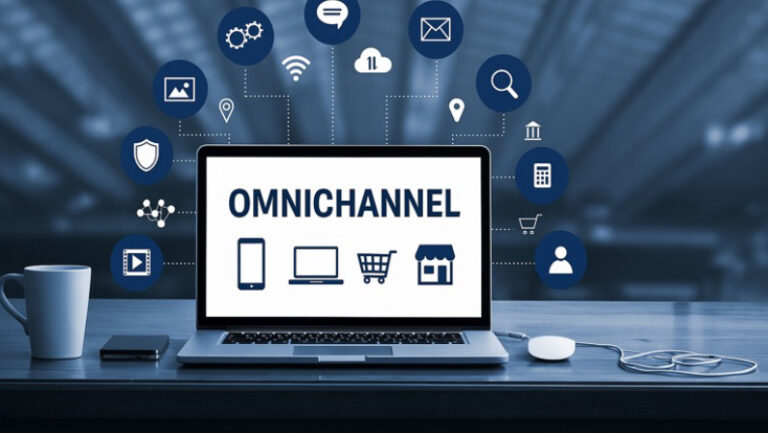Ever feel like your business is stuck in place? You’re not alone—80% of businesses struggle to scale efficiently, often due to limited resources, unclear strategy, or outdated marketing tactics. Scaling isn’t just about growing bigger—it’s about growing smarter, sustainably, and in a way that keeps your bottom line healthy.
If you want to know what are some of the main benefits of using digital marketing, then this guide is made just for you. From targeted ads to automation and SEO, this post will break down proven digital strategies that can help you scale your business—faster and more efficiently. Let’s dive in.
What Does It Mean to Scale a Business?
Scaling a business is about increasing revenue without a corresponding increase in operational costs. Unlike simple business growth, which often requires adding more resources, scaling focuses on creating systems and strategies that enable a business to expand while keeping expenses in check.
It’s the key to long-term success because it allows you to grow faster without being bogged down by rising overhead. For example, a startup that used digital marketing strategies—such as social media ads and SEO—was able to boost its revenue from $10K per month to $100K per month, all while maintaining a lean operation and minimizing additional costs.
Scaling is about leveraging tools, automating processes, and optimizing efforts to build a sustainable growth trajectory.
Top Digital Marketing Strategies That Drive Business Growth

Want to know how digital marketing helps in business growth? Here are the strategies and how they work to push your business to success.
Search Engine Optimization (SEO)
SEO is the process of optimizing your website to rank higher in search engine results, making it easier for potential customers to find you. By improving your site’s content, structure, and backlinks, you can attract more organic traffic, which translates into higher visibility and, eventually, more sales.
Pay-Per-Click Advertising (PPC)
PPC campaigns, such as Google Ads, allow you to target specific keywords and audience demographics. This strategy helps you reach people actively searching for your products or services and can drive immediate traffic to your website, generating quick results.
Content Marketing
Creating valuable, relevant content positions your brand as an authority in your industry. Through blog posts, eBooks, videos, and infographics, you provide solutions to customer problems, increasing trust and engagement, which ultimately leads to conversions.
Social Media Marketing
Grow your business with digital marketing through social media platforms like Facebook, Instagram, LinkedIn, and Twitter, which offer the ability to connect with your audience on a more personal level. Regular engagement through posts, ads, and stories increases brand awareness and customer loyalty while driving direct traffic to your site.
Email Marketing
Email marketing remains one of the most effective ways to nurture relationships with your audience. Sending personalized, targeted emails with offers, product updates, and valuable content keeps your brand top of mind and drives both conversions and retention.
Influencer Marketing
Partnering with influencers in your industry can quickly expand your reach. By using digital marketing for influencers, their established trust and audience, you can promote your products in an authentic, impactful way that drives awareness and increases sales.
Affiliate Marketing
Affiliate marketing allows you to pay commissions to individuals or companies that promote your products. It’s a performance-based approach that lets you scale your marketing efforts without upfront costs, as you only pay for successful referrals.
Video Marketing
Videos are highly engaging and can be a powerful tool for showcasing your products, educating your audience, and building your brand story. Platforms like YouTube or short-form videos on Instagram and TikTok help to create more interactive customer experiences that lead to conversions.
How to Build a Digital Marketing Strategy That Scales
Building digital marketing for business growth requires a clear plan and the right tools to manage growth without losing efficiency. Whether you’re a startup or an established business looking to scale, following these steps will set you up for long-term success.
Step-by-step:
1. Define Your Audience

Understanding who your target customers are is the foundation of any successful digital marketing strategy. Use tools like Google Analytics and social media insights to research your audience’s behaviors, preferences, and demographics. This will help tailor your messaging to meet their needs.
2. Set SMART Goals
Your marketing goals should be Specific, Measurable, Achievable, Relevant, and Time-bound (SMART). Setting these goals helps keep your efforts focused and provides a clear roadmap for tracking success, whether it’s increasing website traffic or boosting sales.
3. Select the Right Channels
Not every platform is suitable for every business. Choose the marketing channels that resonate most with your target audience, whether it’s SEO, social media, email marketing, or paid ads. Tools like HubSpot can help you manage multiple channels efficiently.
4. Set Up Tracking (Google Analytics, CRM, etc.)
To measure your success and optimize your strategy, set up tracking systems like Google Analytics (GA4), CRMs like HubSpot, and email marketing platforms like Mailchimp. These tools help you monitor key performance metrics such as conversion rates, website traffic, and user engagement.
5. Create Scalable Content Assets
Invest in creating evergreen content that can be repurposed and optimized over time. This might include blog posts, videos, infographics, and case studies. Tools like SEMrush can help you optimize content for SEO to ensure it’s discoverable by your target audience.
6. Run A/B Testing
A/B testing allows you to test different variations of ads, landing pages, or emails to see what resonates most with your audience. By using A/B testing tools like Optimizely or Unbounce, you can fine-tune your campaigns for higher performance and ROI.
To support your growth, leverage tools like SEMrush for SEO research, HubSpot for CRM and inbound marketing, Mailchimp for email campaigns, Google Analytics 4 (GA4) for web tracking, and Zapier for automating repetitive tasks. These tools ensure you can scale your marketing efforts without increasing your workload.
Common Mistakes That Block Business Growth Online
Growing your business online can be an exciting journey, but there are a few common mistakes that can hold you back. These pitfalls often lead to wasted resources and missed opportunities. Avoiding them is key to scaling your business successfully.
Some common mistakes include:
- Neglecting mobile optimization: In today’s world, many customers shop and browse online via mobile devices. Failing to optimize your website for mobile can significantly hurt user experience and sales.
- Inconsistent branding and messaging: When your branding and messaging aren’t aligned across all platforms, it confuses potential customers and weakens your brand identity.
- Lack of data tracking and analysis: If you’re not tracking key metrics, you won’t know what’s working and what isn’t. Without data, it’s impossible to optimize for growth.
- Ignoring customer feedback: Customer feedback can be a goldmine of insights that helps you improve products and services. Ignoring this feedback could result in missed opportunities for growth.
Is Your Business Ready to Scale?
Scaling requires preparation and the right resources. Here’s a checklist to determine if your business is truly ready for rapid growth:
- Team Bandwidth: Do you have the necessary personnel to handle increased operations?
- CRM or Automation Software: Is your business using software like a CRM system or marketing automation tools to scale operations efficiently?
- Proven Product-Market Fit: Is there evidence that customers are consistently purchasing and using your product?
- Budget for Testing and Scaling: Have you allocated a budget to test new marketing strategies, tools, and campaigns?
- Repeatable Sales or Marketing Processes: Do you have proven processes that can be scaled effectively to generate more leads and customers?
Partnering with a Digital Marketing Agency

When scaling your business, it’s often wise to partner with a digital marketing agency to take your strategy to the next level. Agencies bring expertise and experience, ensuring you get the most out of your marketing budget. By outsourcing to professionals, you can focus on running your business while they handle everything from SEO to PPC to content marketing.
LeadOrigin is a strategic partner that specializes in helping businesses scale quickly and efficiently. They provide tailored digital marketing services designed to drive results. Whether you’re looking to optimize your marketing funnels or generate qualified leads, LeadOrigin can help make your scaling process smoother and more profitable.
If you’re ready to scale and grow your business online, partnering with an expert agency like LeadOrigin can accelerate your path to success. Contact us today!






